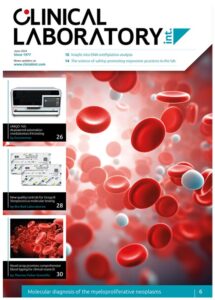Leukaemia study reveals therapy clues
Genes that act as brakes to stop the development of an aggressive form of leukaemia have been identified by researchers. Their findings offer fresh insights into how to tackle the disease and could lead to new therapies that prevent relapses.
Scientists have found that two molecules – Hif-1alpha and Hif-2alpha – work together to stop the formation of leukemic stem cells in an aggressive type of blood cancer called Acute Myeloid Leukaemia (AML). The cancer occurs when production of new blood cells by the bone marrow goes awry. This leads to the formation of leukemic stem cells, which fuel the disease and provide a constant flow of abnormal leukaemia cells.
The University of Edinburgh study shows that blocking Hif-2alpha – or both Hif-1alpha and Hif-2alpha – accelerates the development of leukaemia. The findings are surprising because previous research had suggested that blocking Hif-1alpha or Hif-2alpha may stop leukaemia progression.
Researchers say that their new results suggest that therapies designed to block these molecules may have no impact or could even worsen disease.
Conversely, designing new therapies that promote the activity of Hif-1alpha and Hif-2alpha could help to treat AML or stop the disease from recurring after chemotherapy.
University of Edinburgh


